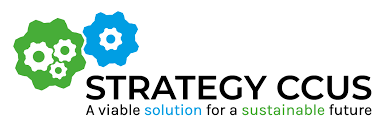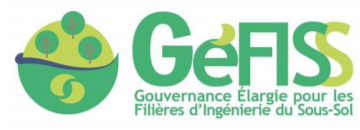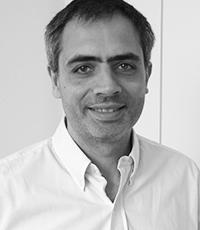 CO2 capture, utilization and storage
CO2 capture, utilization and storage
Our networks
In the field of CCUS (CO2 capture, use and storage), IFPEN is at the heart of a dense network of collaborations with industry and academia on a national, European and global level. IFPEN is also a member of the ZEP European Technological Platform and the ECCSEL European research infrastructure. In addition, Florence Delprat-Jannaud, manager of IFPEN’s "CO2: capture, storage, recovery and negative emissions" program, chairs the 34-member CO2 Club, which aims to facilitate the deployment of the French CCUS sector by developing actions relating to managing risks, supporting the debate, reinforcing competitiveness and creating a legal framework.
A STRATEGIC R&D PARTNERSHIP WITH TOTALEnergies FOR THE DEVELOPMENT OF CCUS
In 2019, IFPEN signed a R&D partnership with Total (becomed TotalEnergies) on the development of technologies for capturing, storing and using CO2, for a period of 5 years. This partnership plans to strengthen the already existing collaboration between the two organizations, in order to meet the objectives of reducing the cost of CCUS technologies and improving their efficiency for large-scale deployment. The partnership notably includes a Chair agreement "Carbon management and negative CO2 emissions to net-zero carbon future" (CarMA) with IFP School in order to train new researchers and international experts in the challenges of technologies for reducing atmospheric CO2.
CO2 CAPTURE PROCESSES
H2020 3D Project: CO2 capture at ArcelorMittal's steelworks site in Dunkirk
The european H2020 3D (DMX™ Demonstration in Dunkirk) project, coordinated by IFPEN, brings together 11 partners and is aimed at demonstrating the DMX process developed by IFPEN on an industrial unit at a steelworks site. This project is part of a wider program to develop a future European CO2 capture-storage cluster in Dunkirk and the North Sea.
It comprises three key steps:
- Creation of a pilot unit in 2021 to demonstrate the performance of the DMX™ process developed by IFPEN, with a capacity to capture 0.5 metric tons of CO2 per hour from steel industry flue gases, prior to marketing by Axens
- Design of an industrial unit in 2026 with a capacity to capture 1 million metric tons of CO2 per year, of the 11.8 million tons emitted at the site.
- Preparation of the future European Dunkirk - North Sea cluster, which should be able to capture, pack, transport and store 10 Mt of CO2 per year.
To find out more -> the 3D project on video.
ADEME DinamX Project: demonstration on an industrial pilote of the DMX™ process
The four-year ADEME Dinamx “Demonstration and innovative applications of the DMX™ process” project was launched in 2020 with partners IFPEN, TotalEnergies Refining & Chemicals and ArcelorMittal France. Coordinated by Axens, the objective is to demonstrate, as a complement to the 3D project (see above), the DMX™ process designed to capture carbon dioxide from blast furnace gases and extend its scope of application to other types of emitters in order to reduce CO2 emissions in France. Other applications will be examined with a view to validating the potential benefits of the process for cement works, glassworks, urban heating and electricity production from biomass.
H2020 CHEERS Project: demonstration of an innovative chemical loop combustion process

IFPEN is contributing to the Cheers project, co-financed by the European Union (Horizon 2020 program) and the Chinese Ministry of Science and Technology. Lasting 5 years (2018/2022), CHEERS brings together long-standing CCUS chain players, including IFPEN, Sintef (project coordinator), TotalEnergies, Tsinghua University and Dongfang Boiler.
The Cheers project is aimed at demonstrating the operational nature of the CLC technology in a scenario identified by TotalEnergies: enable a refinery to use petcoke (a solid hydrocarbon, the final residue left by petroleum conversion processes) to produce electricity and steam without generating CO2 emissions. To achieve this, a dedicated demonstration unit, with a capacity of 3MWth, based on IFPEN technology, will be designed, built and operated at an experimental site run by the energy company Dongfang in China.
Within the project, IFPEN is responsible for evaluating the performance of the CLC process in the complete CCUS chain. IFPEN is also involved in the selection of the metal oxide to be used as the oxygen carrier, the engineering studies, as well as the construction and performance of tests.
CHEERS will validate the technological concepts paving the way for the transition to the industrial step, in particular the control of circulation of the oxygen carrier, which is the key element in the operation of the CLC process tested. The success of the project will position IFPEN, in partnership with TotalEnergies, as a world leader in the field of CLC technology, and an industrial first may well be achieved within the next ten years or so. This would pave the way for the broad dissemination of the technology to major industrial facilities faced with the challenge of producing low-carbon energy to operate, such as electric power plants or refineries.
Choice of storage sites
H2020 STRATEGY CCUS Project: study of several European regions to assess their CCUS capacities

The H2020 Strategy CCUS project, carried out from 2019 to 2021 with 16 European partners and coordinated by the BRGM, was aimed to develop strategic plans for the development of CCUS, a key technology to achieve the GHG reduction objectives of the Paris Agreement, in Europe from South and East. It was also aimed to reflect on the construction of a CCUS infrastructure at European level.
As part of this project, three regions in southern Europe were selected for an in-depth study of their potential for CO2 capture, storage and use. IFPEN has participated in the development and assessment of scenarios for each of the three sites.
H2020 PilotSTRATEGY Project: development of CCUS in Southern and Eastern Europe

The PilotSTRATEGY project, an extension of the StrategyCCUS project, was launched in 2021 for five years. It is coordinated by BRGM and conducted with 16 other partners.
PilotStrategy aims to characterize five regions in Europe (France, Spain, Portugal, Greece and Poland) as potential CO2 geological storage areas. The objective for the first three regions is to carry out the preliminary studies necessary for the implementation of a CO2 storage pilot.
IFPEN's work concerns the French pilot site located in the Paris basin. The work involves characterizing the petrophysical and mechanical properties of the bedrock from samples, building the corresponding geological model and simulating the injection of CO2 in order to optimize the placement of the well and simulate the geochemical and geomechanical effects induced by the storage.
H2020 Rex-CO2 Project: re-using end-of-life oil and gas wells for CO2 storage
Launched in 2019 for a period of three years, the European REX-CO2 (Re-using EXisting wells for CO2 storage operations) project is aimed at developing a numerical tool to help stakeholders make informed decisions regarding the potential re-use of oil and gas production wells for CO2 storage. IFPEN’s participation in the REX-CO2 project concerns the various steps involved in the development of the tool, from the definition of its architecture through to experimental tests aimed at characterizing steel / cement / well rock interfaces, via numerical simulations of the immediate environment.
STORAGE SITE Monitoring
H2020 SECURe project: for the continuous monitoring of CO2 storage sites
The 4-year SECURe (Subsurface Evaluation of CCS and Unconventional Risks) project, launched in 2018 with 17 partners, is aimed at testing and improving existing technologies designed for the continuous monitoring of CO2 storage sites.
This project is an opportunity for IFPEN to validate its global solution composed of a downhole sampler and an analysis booth developed in partnership with EMM Logging on a real site. The aquifer studied within the framework of this validation is a geothermal site containing a low quantity of the dissolved gas. This test will make it possible to verify the validity of the solution for monitoring both a geological CO2 storage site in zones of low quantities of dissolved gas (monitoring of the dissolved CO2 plume, of a CO2 leak) and a geothermal site (site integrity monitoring).
Sense project: for the reliable and cost-effective monitoring of CO2 storage sites
The SENSE project, coordinated by the Norwegian Geotechnical Institute (NGI), was launched in 2019 for a period of 4 years. It is aimed at developing a reliable, continuous and economical monitoring methodology based on the detection of ground movements combined with modeling and geomechanical inversion. In particular, the research draws on new technological developments, as well as the optimization and automation of data processing and interpretation.
ADEME Aquifer-CO2Leak project: new tools guaranteeing the safe usage of the underground environment
The Aquifer-CO2Leak project was launched in 2018 for a period of 4 years to fine-tune existing methodologies and develop new tools designed to ensure the integrity of underground storage sites. This project is a follow-on from the Vadose (2009-2013) and Demo-CO2 (2013-2017).
The Aquifer-CO2Leak project is studying an unclassified underground aquifer below Saint-Émilion via the injection and modeling of a CO2 plume monitoring system and the measurement and monitoring of UZ tracers.
The objectives are multiple:
• to develop dedicated instruments for geo-electrical and geochemical monitoring,
• to define the relevance of tracing using fluorescence and identify new technologies for CO2 leak detection,
• to develop numerical and analytical leak detection and location methods,
• to assess the environmental impact of a CO2 leak and other gas leaks on the water of aquifers.
This project will be an opportunity to test and validate the interest of our continuous fixed monitoring station, at depths of between 10 and 100 meters.
ADEME GecoSampa project: an on-site geochemical monitoring and analysis tool
The GeCO SampA project (2018-2020) has allowed to develop an on-site geochemical monitoring and analysis tool for the management of energy storage and conversion projects.
The technology that was developed enables, owing to a constant-pressure fluid transfer, to determine a geochemical composition fully representative of that found deep underground and hence better interpret the impact of the industrial process being monitored. Both our downhole fluid sampler and the entire methodology that we have developed were tested in real conditions. Work continues within the framework of the SECURe European project.
CO2 CONVERSION
H2020 Sun2Chem project: for an efficient reduction in CO2 emissions using solar energy
The European H2020 Sun2Chem project was launched in 2020. Coordinated by the Ecole polytechnique de Lausanne, Sun2Chem is aimed at developing solutions for the efficient solar-driven reduction in CO2. The objective is to convert CO2 into ethylene. IFPEN’s contribution concerns the development of catalysts for the photoreduction of CO2 and the performance of economic and environmental assessments of this process.
SOCIETAL ISSUES
GEFISS project: an extended governance of subsoil engineering sectors

Gefiss (2018-2022) is led by the Géodénergies SIG and coordinated by the Avenia competitiveness cluster. The objective is to come up with new forms of dialog concerning projects relating to the use of underground resources and the conditions for their execution. The underground engineering projects relating to deep geothermal energy, the exploitation of helium and the storage of gas or CO2 are often challenged and even opposed by civil society stakeholders, which it is important to consider in a co-construction process between the different players concerned. The project brings together an interdisciplinary team made up of a consulting firm, engineering companies, administrative authorities, a research center, and universities in the fields of law and representation of the territory.









